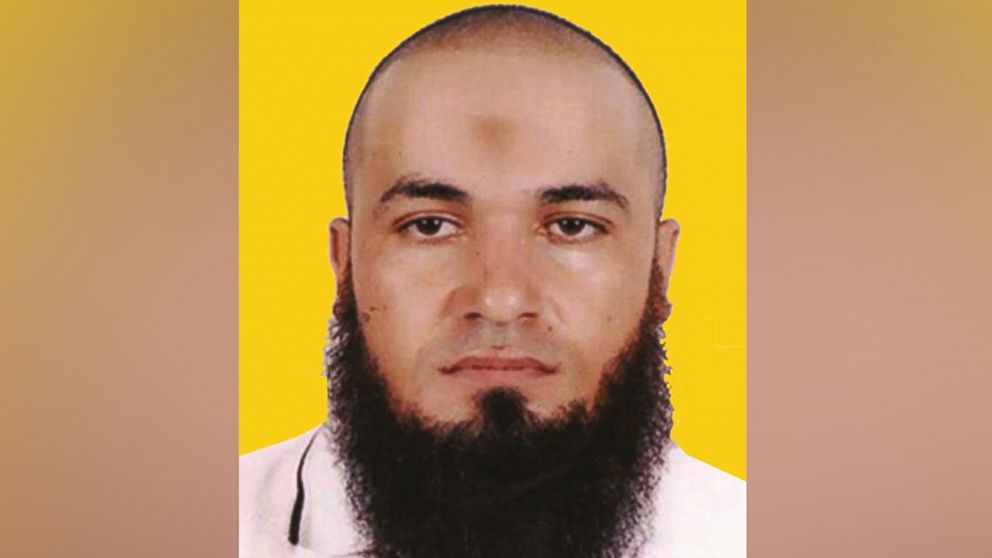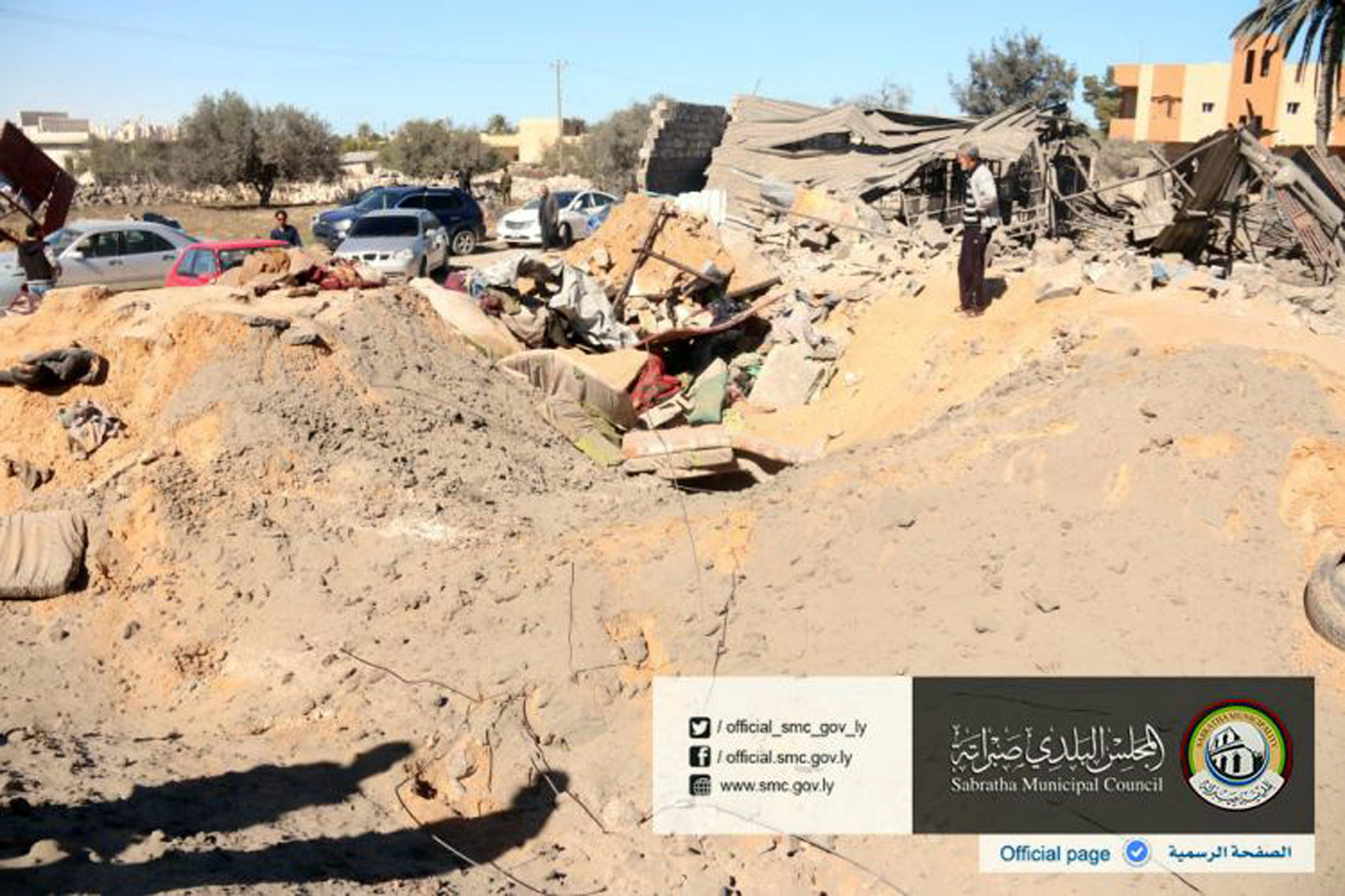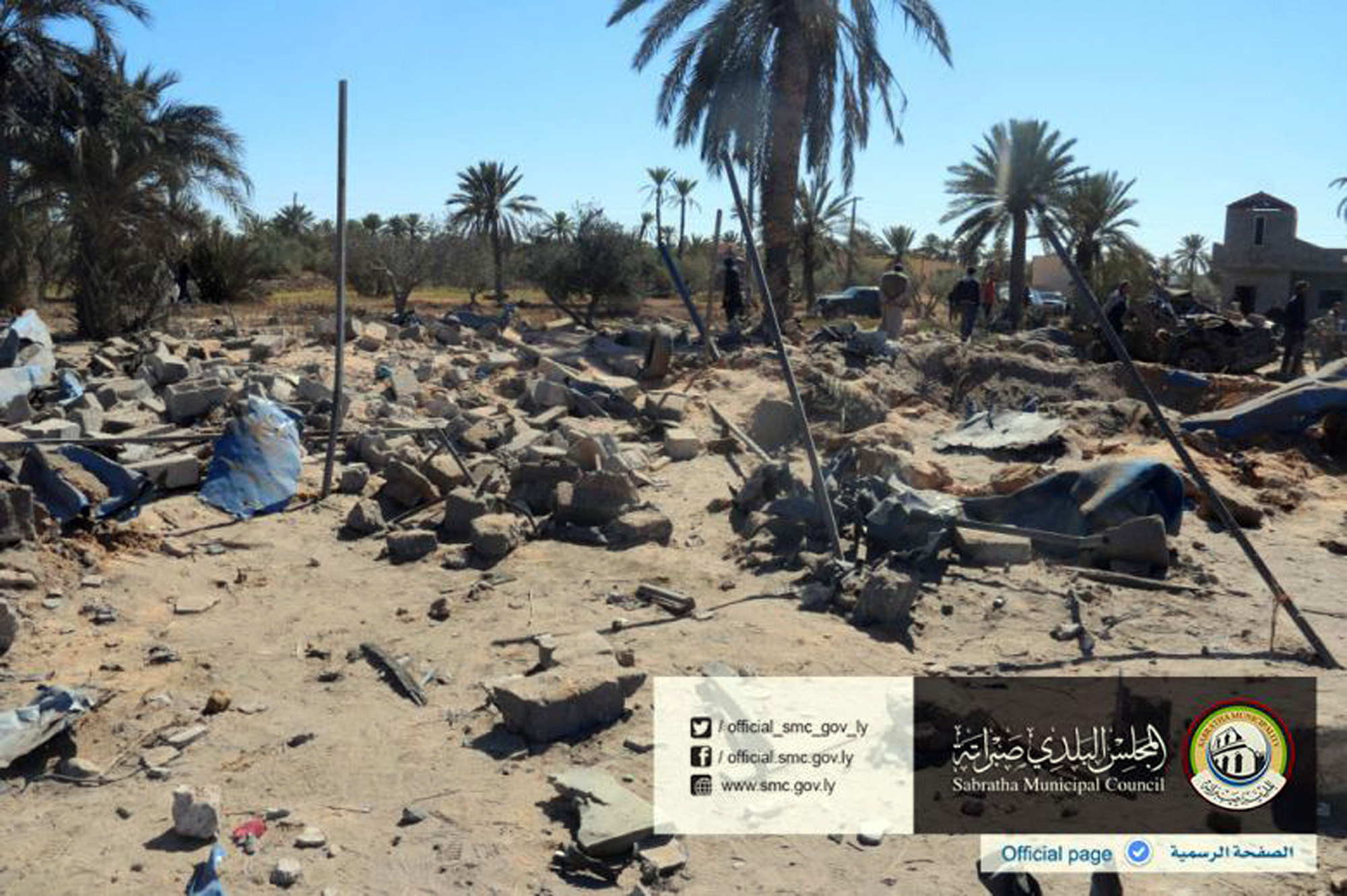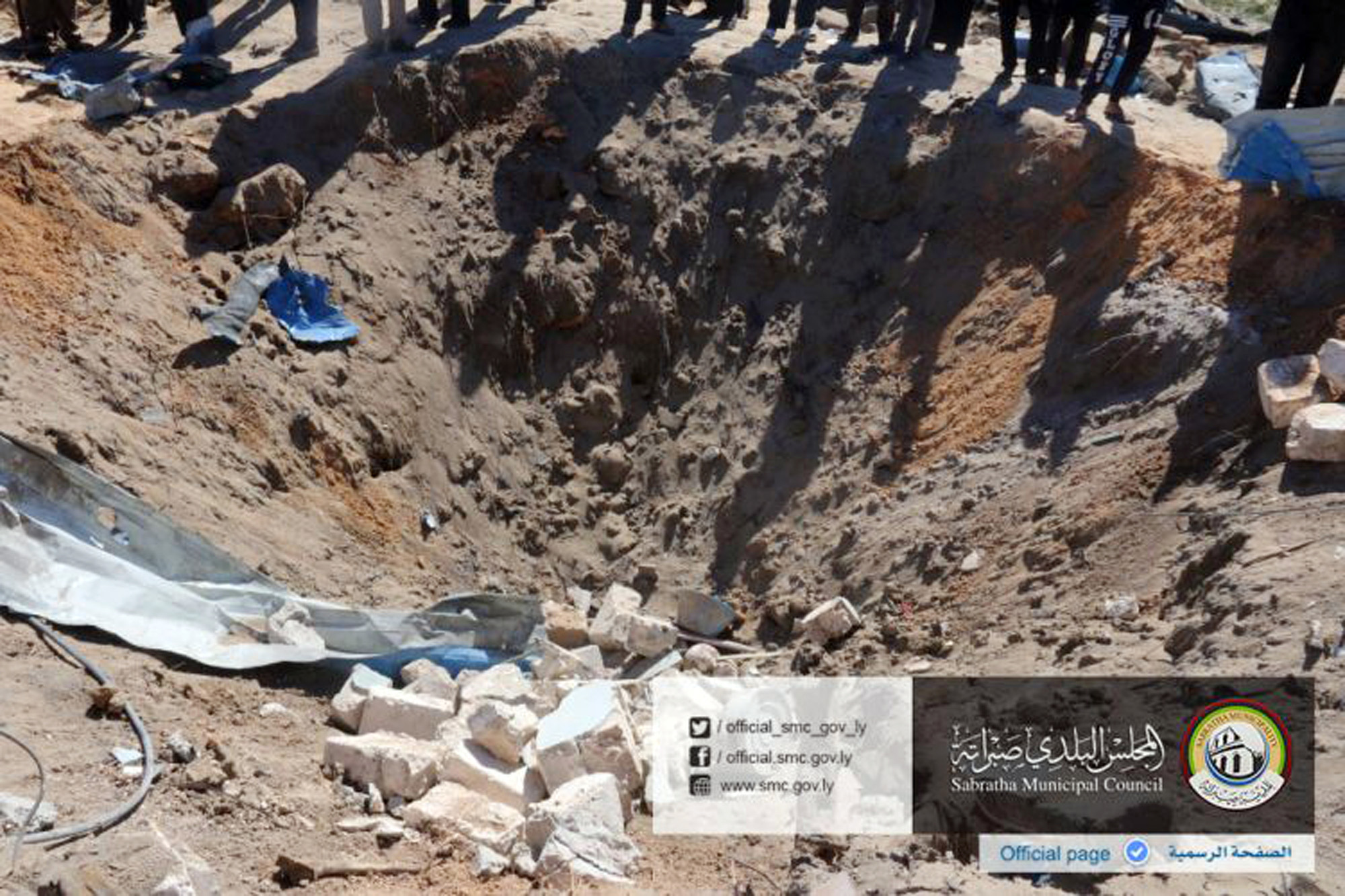US Airstrike in Libya 'Likely Killed' Planner of Tunisian Terror Attacks
The airstrike took place in western Libya.

— -- The United States conducted airstrikes overnight on an ISIS training camp in western Libya that targeted a Tunisian believed to have planned two deadly terror attacks on tourists in Tunisia last year, officials said.
While the assessment is ongoing, one defense official said Noureddine Chouchanne was “likely killed” in the U.S. airstrikes that also killed dozens of foreign fighters at an ISIS training camp for foreign fighters.
Chouchanne, a Tunisian, was believed to be behind last year's terror attacks on western tourists at a beach resort in Tunisia that killed 38 people and a museum in Tunis that killed 22 people, a U.S. official said.

"Early this morning the U.S. military conducted an airstrike in Libya targeting an ISIL training camp near Sabratha and Noureddine Chouchane, a.k.a. "Sabir," a Tunisian national who was an ISIL [or ISIS] senior facilitator in Libya associated with the training camp," Peter Cook, the Pentagon press secretary, said in a statement issued today.
Cook said Tunisian authorities named Chouchane a suspect in the attack last March at the Bardo Museum and "he facilitated the movement of potential ISIL-affiliated foreign fighters from Tunisia to Libya and onward to other countries.”
He said at a later Pentagon briefing, "We took this action against Sabir in the training camp after determining that both he and the ISIL fighters at these facilities were planning external attacks on U.S. and other Western interests in the region.”

A U.S. official said manned and unmanned U.S. military aircraft launched airstrikes early this morning local time on multiple locations in western Libya targeting Chouchanne.
One strike targeted Chouchanne directly and another struck an ISIS training camp near Sabratha, which is located 50 miles east of the border with Tunisia.
ISIS has established a major presence in central coastal Libya, which has concerned U.S. officials who fear that ISIS will be able to use the area as a safe haven to plan terror attacks overseas.
U.S. officials estimate that the ISIS presence in Libya has grown to 5,000 with a sizable number coming from neighboring Tunisia. A defense official told ABC News that ISIS leaders have told foreign fighters to head to Libya instead of Iraq and Syria, where it has gotten too difficult for them to enter.
ISIS has taken advantage of the political and security vacuum in Libya in the years following the fall of strongman Moammar Gadhafi in 2011. A series of weak governments in the capital of Tripoli have been unable to establish government control over various areas of the country where competing militias have vied for control.

A U.S. official said the airstrikes in Sabratha were not part of a new air campaign against ISIS in Libya, but a strike on a high-value target. The strike is similar to one in November the United States conducted in eastern Libya that killed Abu Nabil, the senior ISIS operative in Libya, who had been sent from Syria to establish the group's operations in Libya.
The Obama administration has been weighing for weeks what kind of response the United States should undertake in Libya, especially involving possible military action. The administration has also sought diplomatic initiatives to support a newly formed government.
Earlier this week at a summit of Asian leaders in California, President Obama addressed the situation in Libya and pointed to the strike in November as an indicator that he has "been clear from the outset that we will go after ISIS wherever it appears, the same way that we went after al Qaeda wherever they appeared."
"We will continue to take actions where we've got a clear operation and a clear target in mind," the president said. "And we are working with our other coalition partners to make sure that as we see opportunities to prevent ISIS from digging in, in Libya, we take them. At the same time, we're working diligently with the United Nations to try to get a government in place in Libya. And that's been a problem."
ABC News’ Arlette Saenz contributed to this report.




